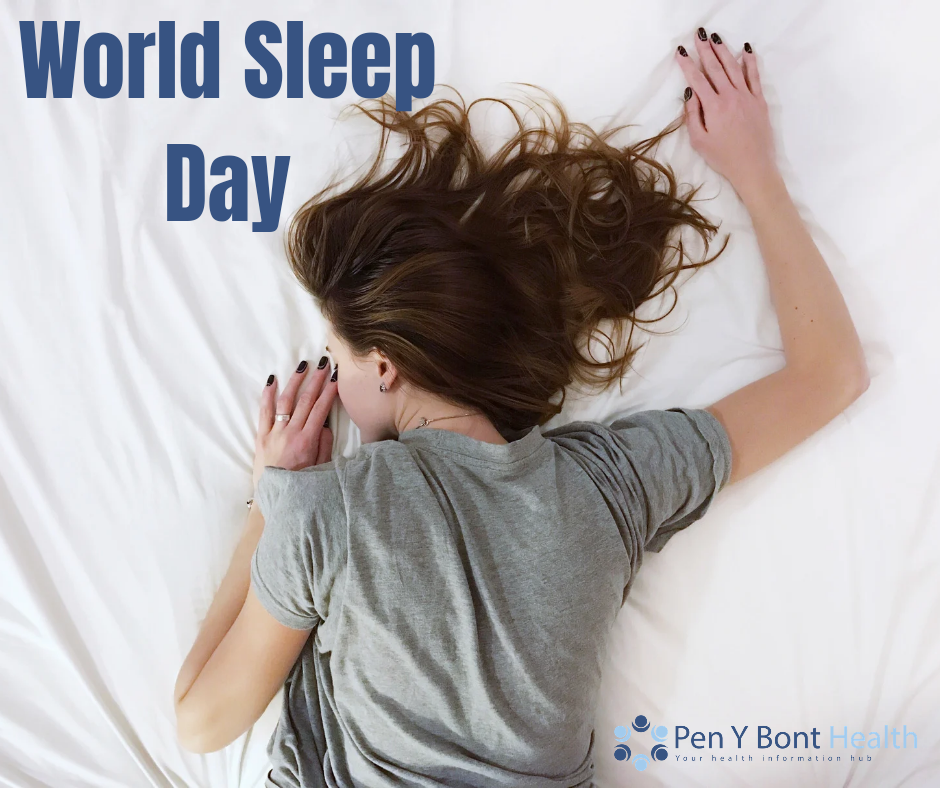The theme for this year’s World Sleep Day is Sleep is Essential for Health.
Sleep is just as important as eating well and exercising in order to maintain a strong foundation to one’s physical, mental and social well-being.
By having a good quality night’s sleep it will allow your body to repair and rebuild itself. It has also been linked to increasing your immune system, weight control and better memory.

How much sleep do I need?
Most adults need around seven or more hours sleep on a regular basis, without disruption.
However, the quality of sleep is just as, if not more important than the actual amount of sleep.
Trouble sleeping?
At some point we all have experiences in finding it hard to fall asleep or find ourselves waking up in the night.
Most of the time, sleep problems sort themselves out. But longer stretches of bad sleep can start to affect our lives. Poor sleep can cause extreme tiredness and make usually manageable tasks harder.
You might:
- – find it hard to fall asleep, stay asleep or wake up earlier than you’d like to
- – have problems that disturb your sleep, such as panic attacks, flashbacks, nightmares or psychosis
- – find it hard to wake up or get out of bed
- – often feel tired or sleepy – this could be because you’re not sleeping enough, not getting good quality sleep or because of health problems
- – sleep a lot – which could include sleeping at times when you want, or need, to be awake
How we sleep and how much sleep we need is different for all of us, and it often changes as we get older. There are many things that can cause sleep disruption that include:
- stresses or worries – for example, issues with money, housing or work
- problems with where you sleep – for example, if you sleep somewhere uncomfortable or you’re easily disturbed
- health conditions relating to sleep, also known as sleep disorders
- being a parent or carer
- taking medication, including starting or coming off medication
- recreational drugs and alcohol
- working at night or being a shift worker
- current or past trauma
- mental and physical health problems, many of which can affect your sleep.
How can I improve my sleep?
- Go to bed and wake up at the same time every day, get yourself into a routine
- Take regular exercise
- Limit or avoid alcohol and caffeine before bed time.
- Avoid screens – phones, tablets and computers before bed.
- Don’t force yourself to go to sleep
- Create a restful environment
But if nothing helps you to sleep better, or you’ve had sleep problems for months and tiredness is affecting your daily life in a way that makes it hard to cope, you could benefit from further support.
There are several resources available to help with any sleep issues you may be experiencing.
How to sleep better – MentalHealth.org
Mental illness and difficulty sleeping (rethink.org)
